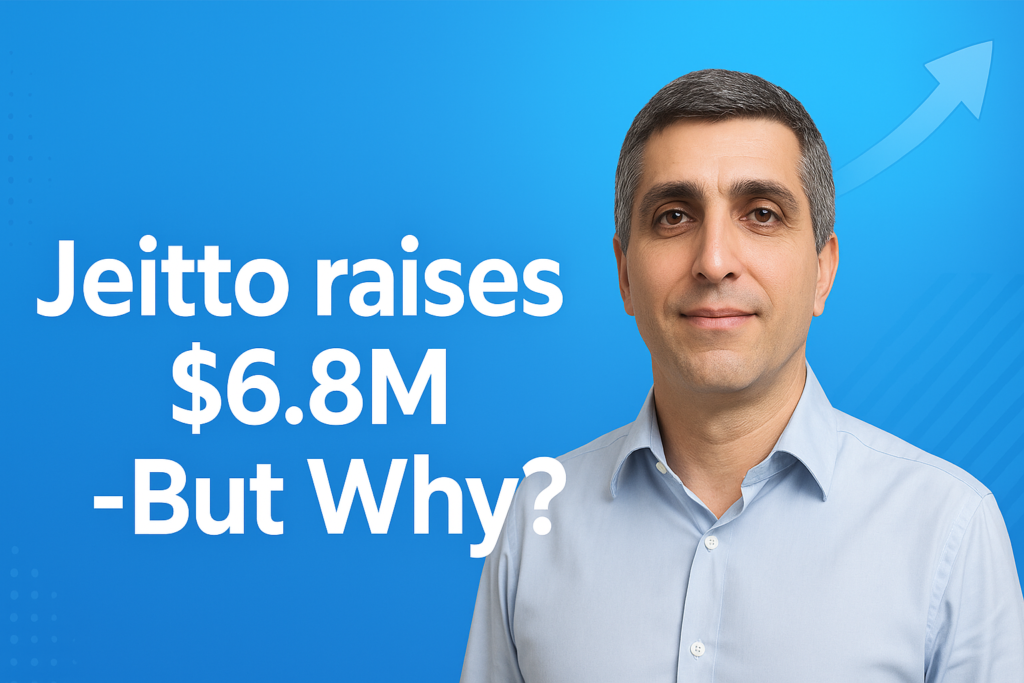Brazilian fintech Jeitto recently secured $6.8 million through corporate bonds structured by Credit Saison, marking a decisive turning point in its mission to demolish financial barriers for millions of underserved Brazilians. This strategic funding positions Jeitto to expand its payroll-deductible loan offerings and dominate Brazil’s rapidly growing digital lending market, currently valued at approximately $320 million.
What Is Jeitto and Who Does It Serve?
Founded in 2014 by Carlos Barros and Jose Fernando Dias, Jeitto operates as a digital microcredit platform specifically engineered for low and middle-income Brazilians systematically excluded from traditional banking. The São Paulo-based fintech delivers microcredit, insurance, and payroll-deductible loans through an intuitive mobile application. Jeitto serves over 13 million clients across Brazil, focusing on formal workers who struggle to secure credit from conventional institutions. The company leverages artificial intelligence, analyzing over 800 variables including cell phone usage patterns and fiscal ID information to assess borrower creditworthiness. Users access digital wallets to make purchases, pay utility bills, perform mobile top-ups, and manage financial obligations through a single integrated platform—addressing daily challenges faced by Brazil’s working class who earn enough for basics but lack credit history for emergency funds.
How Jeitto Helps 13 Million Underserved Brazilians
Jeitto’s microcredit model confronts Brazil’s financial exclusion crisis where 94% of small companies with five or fewer workers operate without credit access. The platform processes microcredit applications in just 30 seconds, doubling its customer base while reducing loan defaults by 20% and increasing approval rates by 10%. The fintech reported $130 million in revenue for 2024, serving over 9 million active customers. Jeitto’s microcredit platform proves particularly transformative for women-led businesses and inexperienced entrepreneurs facing compounded discrimination in traditional lending. Research on Brazilian microcredit programs demonstrates that access increases monthly revenues and profits by approximately 4.5% for small businesses. Jeitto’s pharmacy chain partnerships enable customers to finance medication purchases, recognizing that financial inclusion requires comprehensive support systems beyond simple loan disbursement.
The $6.8M Funding Strategy Explained
The $6.8 million microcredit funding raised through corporate bonds represents a calculated strategic pivot for Jeitto. Corporate bonds allow the fintech to access capital without diluting ownership while demonstrating market confidence in its repayment capacity. This funding specifically targets expansion of Jeitto Consignado, the company’s payroll-deductible loan product offering significantly lower interest rates through automatic monthly paycheck deductions that dramatically reduce default risk. According to Jeitto’s official statement, this funding will drive expansion of Jeitto Consignado and broaden credit access for formal workers with lower rates and flexible terms. The timing aligns strategically with the Brazilian government’s upcoming eConsignado platform designed to streamline payroll lending nationwide. This corporate bond structure diversifies financing sources beyond previous venture capital backing, strengthening financial resilience—critical for a microcredit platform in Brazil’s volatile economic environment.
Why Traditional Banks Miss Low-Income Workers
Brazil’s traditional banking sector systematically excludes low-income workers through structural biases, outdated risk assessment models, and economic incentives prioritizing high-value customers. Conventional banks require extensive documentation, established credit histories, collateral, and minimum balance requirements creating insurmountable barriers for informal workers and small-scale entrepreneurs earning irregular incomes. Traditional banks view low-income customers as unprofitable due to small transaction sizes and perceived high risk. Default rates on personal loans in Brazil hover around 4.5%, causing traditional banks to tighten credit criteria and effectively punish the entire low-income demographic for macroeconomic conditions beyond individual control. Traditional credit scoring models heavily weight formal employment history and property ownership—metrics inherently disadvantaging young workers, women entrepreneurs, migrants, and anyone in Brazil’s substantial informal economy comprising over 10.5 million small companies.
What Jeitto Plans to Do With the Money
Jeitto Raises $6.8M—But Why?:Jeitto’s microcredit expansion strategy centers on scaling its consignado product line while maintaining technological superiority in risk assessment and fraud detection. The $6.8 million will fund enhancements to its AI-powered decisioning platform processing credit applications using Provenir’s technology infrastructure integrating fraud detection and identity verification directly into lending workflows. Geographic expansion represents another critical investment area, with funding supporting customer acquisition in underserved regions where traditional banking presence remains minimal. Following its recent acquisition of Pilla, a private payroll loan platform serving employees at large corporations, Jeitto will invest in seamless service integration. The company plans expansion beyond pure microcredit toward becoming a comprehensive financial platform, leveraging its 13 million consumer database to develop insurance products, savings mechanisms, and investment opportunities tailored to low-income demographics—transforming from microcredit specialist into a full-spectrum financial partner.
Learn Business Model Of Jeitto

My Name is Adarsh and I am Empowering startups with high-quality content at Startups Union and bridging the gap between brand stories.
